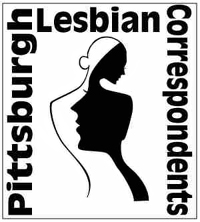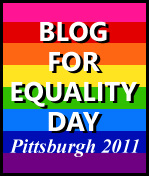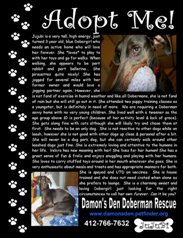Now this makes for an interesting Monday morning read. A letter to the Tribune Review from a pagan that stems from another letter commenting on an Anglican Nigerian Bishop.
Anne E. Lynch of Swissvale writes in response to John Patterson's letter. You'll recall from last week that Mr. Patterson is an admirer of homophobic Nigerian Archbishop Akinola, noting his "spiritual testosterone" as well as his disdain for American sexual freedom.
Ms. Lynch takes issue with Mr. Patterson's reference to "the rubber-band flexibility of neo-pagan permissiveness." A practicing pagan, she notes that "all Pagans follow a code of moral, ethical, social and religious behavior."
Ms. Lynch then goes on to invite readers to visit Greater Pittsburgh Pagan Pride with a clear request that visitors avoid offering to save their souls.
She writes, "We don't proselytize or seek converts. Your spirituality is your business -- let us practice ours in peace.
Ah, Anne, if only all people of faith could live by that code.
This has been an intriguing thread and a fascinating example of the real dialogue around LGBT faith and spirituality issues and, perhaps, a microcosm of the larget societal debate. Archbishop Chane's original epistle frames the conflict between a pastoral concern for members of the gay community and a failure to speak out when a church leader endorses a law that openly criminalizes homosexuality and strips homosexuals of their most basic civil liberties.
This treasure trove has inspired many letters to the editor in both the Tri and the Post-Gazette with the vast majority expressing sympathy and compassion for the gay community. How telling that the few letters defending Akinola's position are vitriolic rants from individuals who openly hate homosexuals. Excepting the tempered response opinion piece in the Post-Gazette.
That's the ultimate chasm. These people -- the ones who speak up -- deeply hate homosexuals. They are not content to love us in spite of our "sins." They want to obliterate us from their churches, schools and government. They have a clear, concise message that appeals to the vast masses who are acutely uncomfortable with homosexuality and find us a convenient target for all their post-modern angst. (Obviously, they would not describe it that way).
The gay community, both in and out of the church, must find a way to reach out to the middle. We are never going to convince the right wingnuts to let go of their hatred. But I remain convinced that most people don't hate us; they simply don't understand us. Confronted with something new, they look for guidance and many turn to a warped moral schematic which puts queers in the category of immoral being.
We chip away at this stigma, this sense of "other" with every positive interaction the middle folks have with an identified homosexual. Some of my gay comrades prefer to keep a low-profile. In the name of self-preservation, that's fine and sadly necessary. But for those who ride under the radar simply because its easier or because its comfortable, you are doing a disservice to our community.
People need to know queers on a personal level to overcome the homophobia they learn at school, church and home. It is not the only battle, but its one that every queer can take on.
Sue





